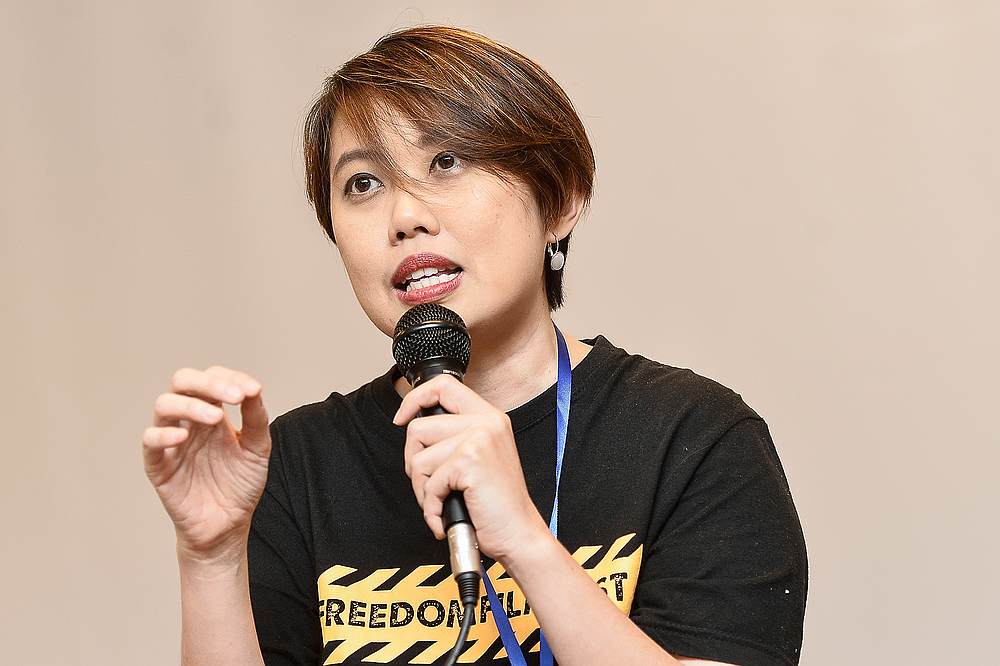PETALING JAYA, Oct 1 — Fifty years later, film producer Tham Seen Hau recently discovered that her deceased family members, who were victims of May 13 riots, are still recorded as “active” or “alive” with the National Registration Department (NRD).
Tham, who is the third generation of the Ng family, was recently at the NRD with her mother and extended family members to extract a copy of their birth certificates.
Based on checks with the department, Tham discovered that her grandmother, great grandmother, aunt and two uncles who perished in the May 13, 1969 riots were never recorded as deceased in the system.
“I am hoping that the government would at least release a list of people who had died during that period of the riots.
“That is the simplest form of justice they could do for the deceased and their family,” Tham told Malay Mail when met after the screening of her documentary 50 Years of Silence at the Freedom Film Festival 2019 over the weekend.
Tham said this proves that May 13 victims have been totally disregarded.
The film producer said this is one of the reasons why she produced the documentary, which records the May 13 accounts, to remind Malaysians about the tragic incident which contributed to change in the country’s history and the inheritance of racial tensions.
“It should have been made a lesson, instead, politicians are manipulating the incident as a bargaining chip to threaten voters,” she said.
In a scene from the documentary, Tham’s uncle, only known as Uncle Chau recalled how they found the dead body of their 14-year-old younger brother, Ng Cheng Chuan, in their burnt down house in Kampung Baru.
Chau said what remained of his brother was his upper-body skeleton and a skull.
“That was the first thing which we saw as we entered the house (upon returning after curfew was lifted over a week later).
“Initially we were not sure. But what told us that was our brother, was his blue shorts and shoes,” said Chau in the documentary.
Tham’s mother was filmed as saying that she wanted to do this so that she could bring justice for those who died, by telling the truth of what had happened on that day.
But she was met with resistance from her older sister, who did not want to relive those memories.
“But if you don’t say anything now, no one will ever know, and our family will forever be faceless, nameless and nobodies in the Malaysian history — given what they went through,” said Tham’s mother, who eventually managed to convince her sister to recount the tragic memories in the documentary.
Tham’s aunt till today has nightmares of the horrors of May 13, 1969.
Today, she isn’t able to tolerate crowded or noisy places as it reminded her of the noises made by the rioters.
“We hid in the house. But eventually, the rioters demanded for us to come out. Then, they snatched each of us — that was how we were separated.
“I don’t know how many people were on the streets back then, but the streets were filled with rioters.
“Today, people asked me to join Bersih rallies, but they reminded me so much of the riots, so I would never agree to participate in any kind of rallies,” said Tham’s aunt.
Through making this documentary, Tham finally realised how much the incident has affected her family.
“I told myself that I’d stop mentioning the words ‘May 13’ to my family after uncle Chau told me to stop talking to him about anything regarding that day. He said he could not sleep for a month after I had interviewed him,” she said.
It was for the first time in 48 years that Tham’s mother was looking at photos of her family again (during her interview sessions). These were keepsakes that were salvaged from their burnt down house.
When asked if she would bring the documentary elsewhere, she said this is the first time she was showing the documentary of her family of May 13 to a public audience.
“The reason why I have decided to do this through the Freedom Film Festival is because my family and I felt this is a safe space.
“But they’ve refused to watch it, even though I invited them to be here today.
Tham’s mother said as closing remarks of the documentary: “How can it be that people who died 50 years ago is still ‘alive’ in the system. Maybe it’s better to remember them this way. It would mean that they will live eternal lives.”



















